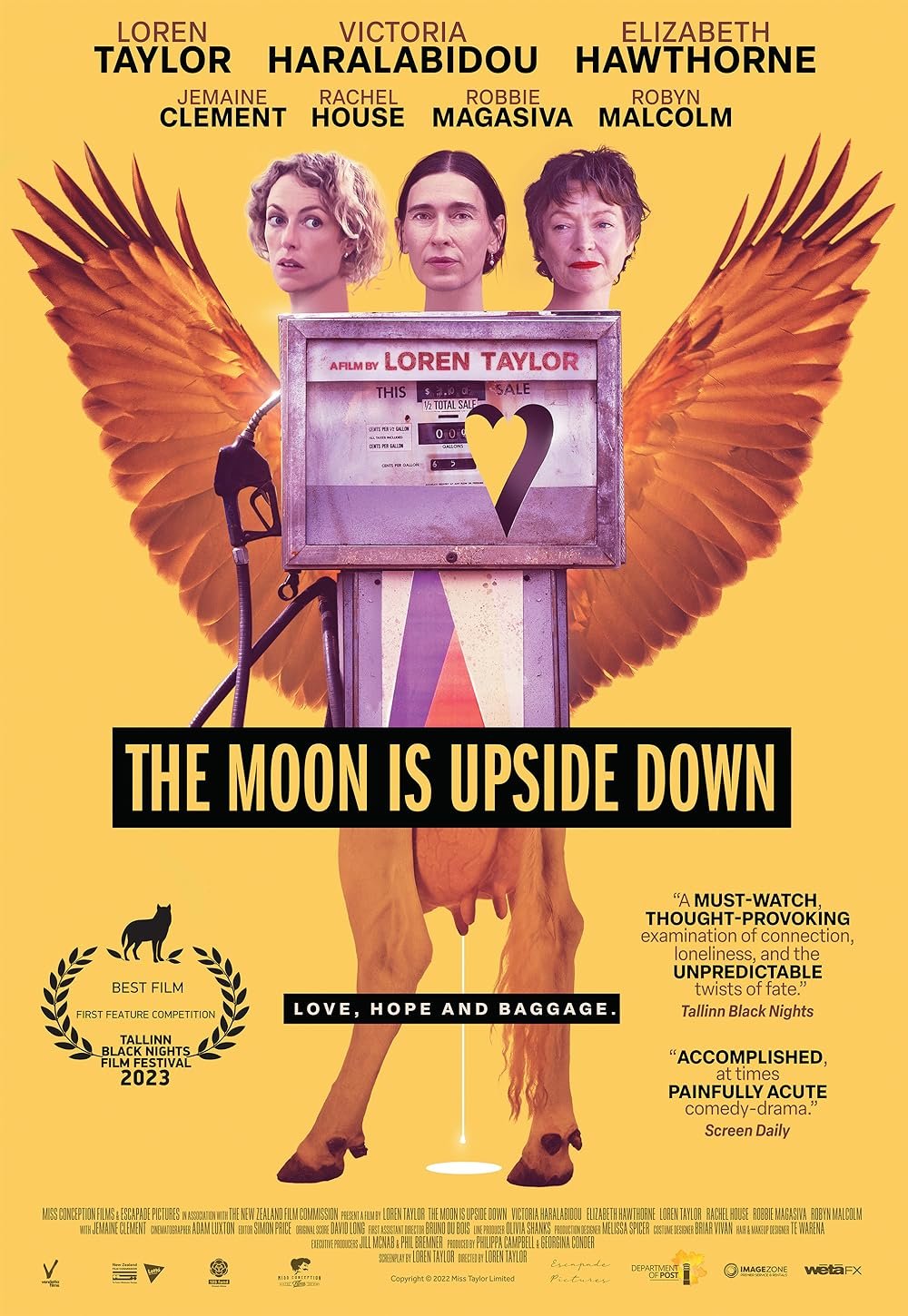The Moon is Upside Down
NZ release: 02 May 2024
Offensive language and sex scenes Rated on: 16 January 2024

What’s it about?
Three women navigate life and dashed expectations. Natalia is a mail-order bride, newly arrived in Aotearoa; Faith deals with the death of a tenant; and Briar hopes for a romantic weekend away.
The facts
- Loren Taylor writes and directs (Eagle vs Shark)
- Stars Jermaine Clement, Robyn Malcolm and Rachel House
- Language: English
- Runtime: 99 minutes
Why did it get this rating?
Sex
The film deals with sexual relationships and contains frank sexual material. The sex is awkward and played for comic effect.
Examples include:
- Sex scenes with nudity
- A couple having webcam sex
- A woman giving oral sex to a man driving a car
Sexual violence references
There are non-detailed references to sexual violence. A woman talks about having a child at 12 years old.
The sex between a mail-order bride and her new husband brings up questions of consent.
Offensive language
The film contains occasional offensive language. F**k and s**t are used to express displeasure.
Harm to animals
The film contains instances where animals are hurt. A caged canary is found starved to death after its owner dies and a falcon is hit by a car. It later is killed out of mercy.
Further information
Why are ratings and content warnings important for me and my whānau?

